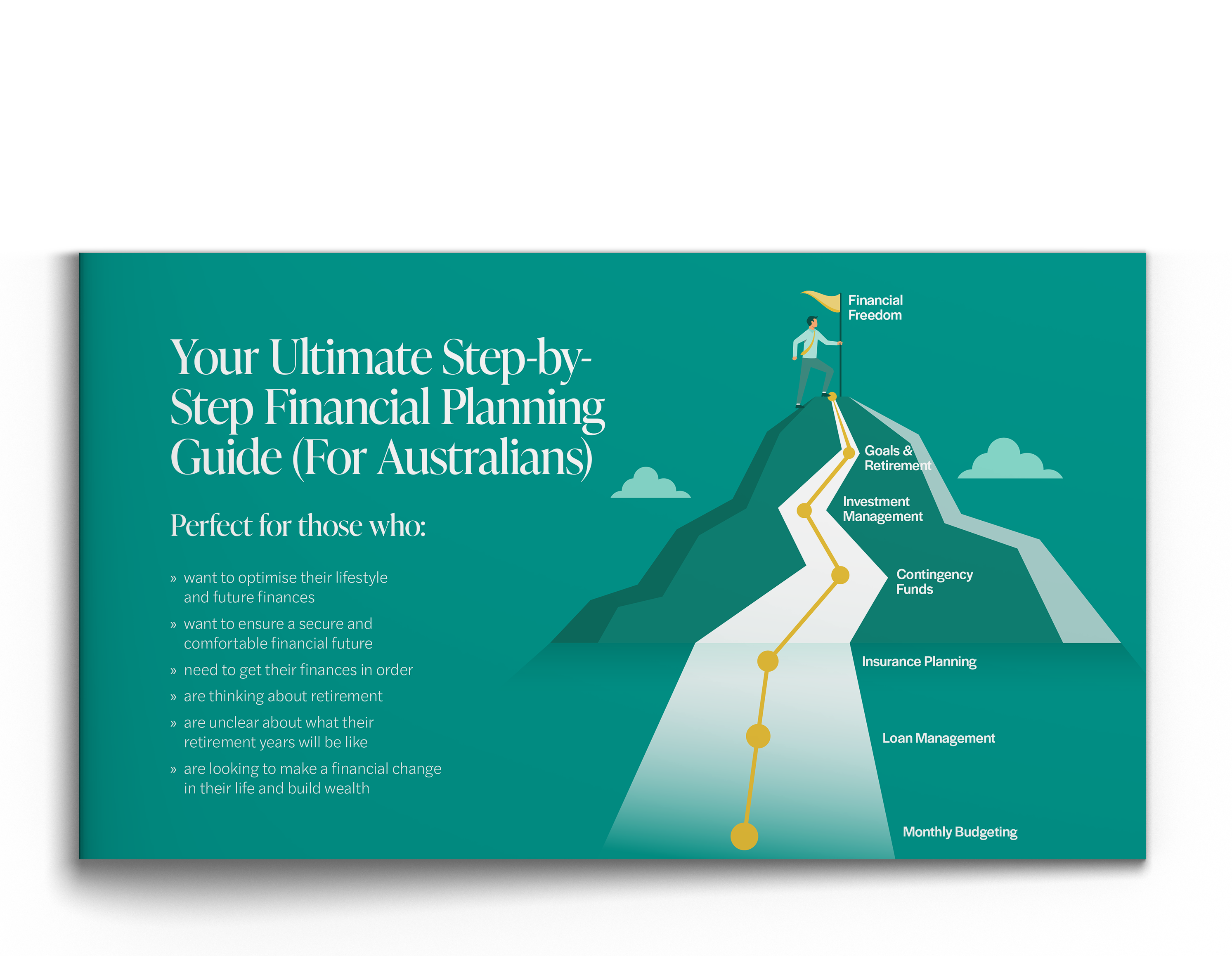Being unable to have constructive conversations with your partner about money is one of the main reasons couple's fight.
Whether it’s one person is spending too much, or you guys can’t agree on investing in shares or property, arguments about money can lead to relationship stress. And if left unresolved, can lead to the breakdown of a relationship.
Like relationships, communication is key. So, taking the time to understand each other’s financial personalities can help you to gain a better appreciation of their money motivations and give you some parameters to have constructive conversations. This can remove some of the angst and stress felt when you know you need to have “that chat” about the household finances.
The Big Spender
The Big Spender often applies the motto of ‘treat yo’ self’ when it comes to their saving and spending habits. They, like most of us, work hard for their money and they feel as though they have a right to enjoy it. They also tend to have a champagne taste on a beer budget, so if they need a new pair of prescription glasses are probably splurging on the latest pair of Prada’s at OPSM rather than a more cost-effective Specsavers brand.
How to tell if you’re a Big Spender:
- Have a credit card, which is never paid off
- Lease your car or have a car loan
- You never really have savings, however, if you do manage to save, it doesn’t last long
- You often buy presents for people just because
Pros:
- You are having fun living life large
Cons:
- You have no financial security. You live pay to pay and your debt causes you worry
- You could be a social value spender, someone who makes purchases (either for themselves or others) to boost their self-esteem.
- You also have to borrow money for any big purchase
How to communicate with them:
It’s important to recognise that Big Spenders purchasing habits are closely linked to their self-esteem and view of who they are. Being overly critical of this can come across as though you are attacking their perception of themselves. Being able to show them the lifestyle and social benefits of achieving short term goals can help turn the ship around and show them what they can achieve, building up their confidence. Work on small changes and little wins first.
How we can help:
We can work with you to create a budget plan that will help you see things from a different perspective.
The Wheeler and Dealer
These people take their time to make decisions about spending money. They will also shop around to make sure they are getting a good price.
They don’t pay a loyalty tax, so they won’t stay with a supplier or brand just because, they will move for a better offer on things like mortgage, insurance, etc.
How to tell if you’re a Wheeler and Dealer:
- You love a bargain and specials; you will happily flip through junk mail to see what deals are out there.
- You shop around for all your utilities and insurances
- You will travel further to get cheaper fuel
- Each grocery shop involves multiple store visits because you know that ALDI has cheaper cat food but Coles has better value on their steaks
Pros:
- You are not spending frivolously
Cons:
- You can lose sight of the effect of large purchases. While you’re saving money week to week, you’re still not getting ahead.
- You feel in control which can make you lax on other areas. Such as bulk buying something you don’t need as it’s a bargain.
How to communicate with them:
When communicating with the Wheeler and Dealer, it’s important to realise they see this behaviour as a good thing for the household. They see it as leading to savings when at times it might not (such as driving an extra ten minutes to get cheaper petrol when you’ve used more to get there).
They like to be in control and probably find it hard to deal with the unpredictability of life, so want to control any aspect of it that they can. Another underlying reason for wanting such strong control of your finances is that they may have lost control of other areas of life.
How we can help:
Building long term goals to tie into your short-term focus. We can help you feel in control of your finances and fully understand where you are and want to go.
Ostrich
Put simply, you have your head in the sand when it comes to your finances. You have no clue how much you are spending and how that relates to your income. Essentially, you adopt the concerning motto ‘it all seems to be working out so best not to know’.
How to tell if you’re an Ostrich:
- Don’t check your bank account regularly
- Have no clue what your expenses are
- Don’t know what your mortgage interest rate is
- Have anxiety when you tap your card, unsure if it will go through
Pros
- You are living life
Cons
- You have no financial goals and are largely winging it
- You likely have anxiety because you don’t know what’s really happening with your money
- You’re not a big spender but not getting ahead
- You have no idea of how or when you will be able to retire, or what type of a lifestyle you will have when you do.
How to communicate with them:
Bear in mind that these people are already anxious about their finances but they don’t want to admit it to themselves, let alone their partners. Any attempt to talk with them about their finances could see them shut down and/or hostile. Getting them to understand that you’re not judging them or being critical, you just want to help both of you understand the household finances to achieve a better outcome for your family.
How we can help:
Education is freedom. It doesn’t have to be scary and we can help you both understand your finances, set achievable goals and give you tools which you can manage to empower you.
Plus, having an outside party present for your financial discussions can help to give perspective on the bigger picture, as long as the conversations don’t appear as though both you and your adviser are ganging up on your partner.
Stockpilers
These guys feel as though they have got it in the bag. They have substantial savings and are achieving their financials goals.
How to tell if you’re a Stockpiler
- You think about the future and are confident in your financial future
- You pay more than the minimum off your mortgage
- You don’t pay credit card interest
Pros
- Meeting your long-term goals
- You’re prepared for the unexpected
Cons
- You may be sacrificing today for tomorrow which means missing out on things because you don’t want to spend any money
- May not necessarily be best utilising the money you’ve saved. Whilst it’s important to save a good sized ‘just in case fund’, there are opportunities to use that money to achieve broader financial goals whilst still having a stockpile.
How communicate with them:
For Stockpilers, money represents security, so any attempt to get them to spend money on items they view as unnecessary they will view as risky or frivolous, and also potentially as a personality fault within their partner.
They need to be presented with logical reasons to part with their cash. It’s important to find the balance with them. Discuss with the need you have to be able to enjoy your lives together now while still meeting your long-term financial goals.
How we can help:
It’s all about moderation; learn to find a balance between saving money and enjoying life.
It is very important to have a rainy-day fund and we would also encourage our clients to have a cash safety net. However, cash is not a suitable long-term investment and this money could actually be put to work for you, building your safety net. Our team can discuss different investment approaches with a low level of risk with you and your partner.
High Roller
Not to be confused with the Big Spender, the High Roller actually has the means to buy the best of everything but that doesn’t necessarily mean that you should.
How to tell if you’re a High Roller
- You have a high-income household
- You don’t think about your spending
- You’re career focused with income security
- You have debt
- And the big tell is that you don’t think twice about shouting the entire table a meal and making a grand gesture in doing so
Pros
- Living Life
- You’re well liked (but is it for the right reasons?)
Cons
- You might be overconfident in your financial security
- Often don’t have a plan for if you’re finances change
How to communicate with them:
Any criticism on their spending could either be meet with 1) them finding it jovial as they think you have no clue about their success or 2) “she’ll be right” as they believe that the good times will just keep rolling so there is no need for them to be conscience of their spending. Also, any criticism of their show off nature may not go down well as they don’t see it in that way, they see it as them just being generous.
Getting them to realise that things may change
How we can help
Find the balance between living now and ensuring your family’s future is financially secure. We’ve all heard stories about very wealthy people who lost everything during the GFC or coronavirus pandemic because they didn’t have a plan in place should some unforeseen circumstance arise and they no longer had the same level of income.

